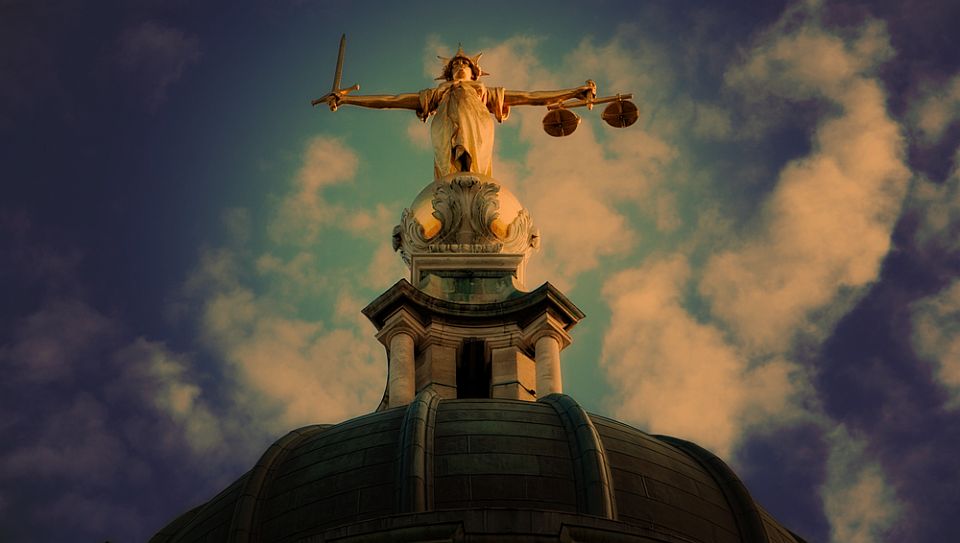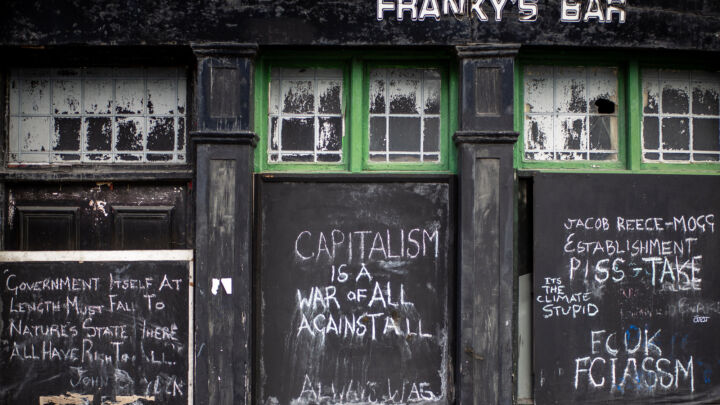How UK courts are betraying Magna Carta
We must resist the new assaults on due process.

Want unlimited, ad-free access? Become a spiked supporter.
On the 800th anniversary of Magna Carta, two of its most important principles – the right to due process and the presumption of innocence – are under threat. The right to due process, as established in Clause 39, is one of three Magna Carta clauses still on the English statute books. Lawyers are right to point out, as they often do, that the term ‘presumption of innocence’ does not actually appear in Magna Carta. However, inherent in the right to due process is the presumption that, prior to the proper judgement, you are undeserving of punishment. Accordingly, most people – even lawyers – accept that the modern idea of the presumption of innocence owes a significant debt to the provisions of the charter.
Clause 39 of the charter reads: ‘No free man shall be seized or imprisoned, or stripped of his rights or possessions, or outlawed or exiled, or deprived of his standing in any other way, nor will we proceed with force against him, or send others to do so, except by the lawful judgement of his equals or by the law of the land.’ In 1868, this clause formed the basis for the Fourteenth Amendment to the US Constitution.
Historians will say that, in 1215, the right to be tried by a ‘judgement of his peers’ meant the right to be tried by the king’s justice, rather than by a jury as we know it today. Others suggest that the clause was really just a means for the barons to stop King John from mounting an army against them. The clause was not thought to apply to members of the wider public until seventeenth-century jurists said that it did. But whatever the impact of the clause at the time, it has provided a common-law right to be free from arbitrary incarceration for centuries. In court judgement after court judgement in the UK and the US, Clause 39 has been recognised as a constitutional safeguard against the arbitrary will of the state. It was a historic recognition of the rights of the individual over and above the arbitrary will of a governing power.
But, today, the rights established by the charter are at risk. Two things have worked to limit the impact of Clause 39. The first, and by far the most significant, is human-rights law, which brought the process of deciding what amounts to a presumption of innocence, or a right to due process, under the adjudication of the court itself. Secondly, there is a hostage to historical fortune contained within the text of the charter itself: the idea that due process and the presumption of innocence are always subject to judgement by the ‘law of the land’.
Today, it is the European Court of Human Rights (ECHR) in Strasbourg that decides what amounts to due process in a fair trial. Article 6 of the European Convention on Human Rights is now the primary means of challenging those aspects of the law that appear, at first blush, to ride roughshod over due process and the presumption of innocence. If you think you have been chucked in prison without a fair trial, then you seek recourse in the convention. Except, such is the irony of history, that today it is the court itself that decides whether its own processes are fair. In order to bring a claim under Article 6 you have, first, to raise a case with the relevant courts in the UK. If that doesn’t work, you have to try to convince a body of judges on the continent that your right to due process has been undermined. It turns out that the judges at the Court of Appeal and the ECHR are highly unlikely to share your idea of what constitutes fairness.
All sorts of things that would have offended the barons of thirteenth-century England have been rubber-stamped by human-rights lawyers. Today, lots of hearings in criminal and civil proceedings can be heard in private, without the defendants being present or informed, or even being informed of the evidence against them. Immigrants can be locked up without so much as a shred of evidence, given that Article 6 does not even apply to many immigration cases. ‘Domestic-violence prevention orders’, introduced in 2013, permit the authorities to remove people from their homes without necessarily requiring a defendant to be present at court when the order is made. Buskers can be whipped from the street and their instruments confiscated merely because some local council officer decides they are a nuisance. Today, the idea of ‘due process’ has been hollowed out by law after law allowing detention and punishment without anything close to what we might call a fair hearing.
The presumption of innocence is also treated with comparative disregard today. One primary example is the law around rape. This allows for certain presumptions to be made against defendants when considering, for example, the issue of consent, including cases in which a defendant has had sex while the complainant is drunk. This directly reverses the burden of proof, presuming the defendant to have the requisite ‘guilty mind’ unless he can prove otherwise. When considering whether or not to charge an individual, the state’s lawyers are instructed to focus on aspects of what a defendant did in the lead-up to sex to ascertain whether his partner was consenting. This means that a defendant can be charged because of what he didn’t do rather than what he did. When the Sexual Offences Act 2003 was passed, even the UK House of Lords acknowledged that this act would undermine ‘golden threads’ of English criminal-law traditions, including the presumption of innocence. It turns out that the ‘law of the land’ can often drive a coach and horses through even the most hallowed legal principles.
However, we shouldn’t be defeatist. Yes, many legal proceedings do present a challenge to the spirit of Clause 39. We are, perhaps, more willing to comply with the arbitrary exercise of authority, as long as it is in accordance with the ‘law of the land’. But the spirit of Magna Carta should still move us today. We should continue to recognise the principle inherent in Clause 39, even if we are so often denied the substance of its protection. The most prescient way to keep the spirit of Magna Carta alive today would be to refuse simply to accept that what the law tells us is right. We should continue to question and challenge those laws that appear to treat the enactment of punishment as an end in itself. We should refuse to accept the pragmatic and compromising notions of freedom handed down by the human-rights courts. We should continue to reiterate the simple principle behind Clause 39, a principle that can be stated by reducing the text of Clause 39 to two words: we matter.
Luke Gittos is law editor at spiked, a solicitor practising criminal law and convenor of the London Legal Salon.
You’ve hit your monthly free article limit.
Support spiked and get unlimited access.
Support spiked and get unlimited access
spiked is funded by readers like you. Only 0.1% of regular readers currently support us. If just 1% did, we could grow our team and step up the fight for free speech and democracy.
Become a spiked supporter and enjoy unlimited, ad-free access, bonus content and exclusive events – while helping to keep independent journalism alive.
Monthly support makes the biggest difference. Thank you.










Comments
Want to join the conversation?
Only spiked supporters and patrons, who donate regularly to us, can comment on our articles.